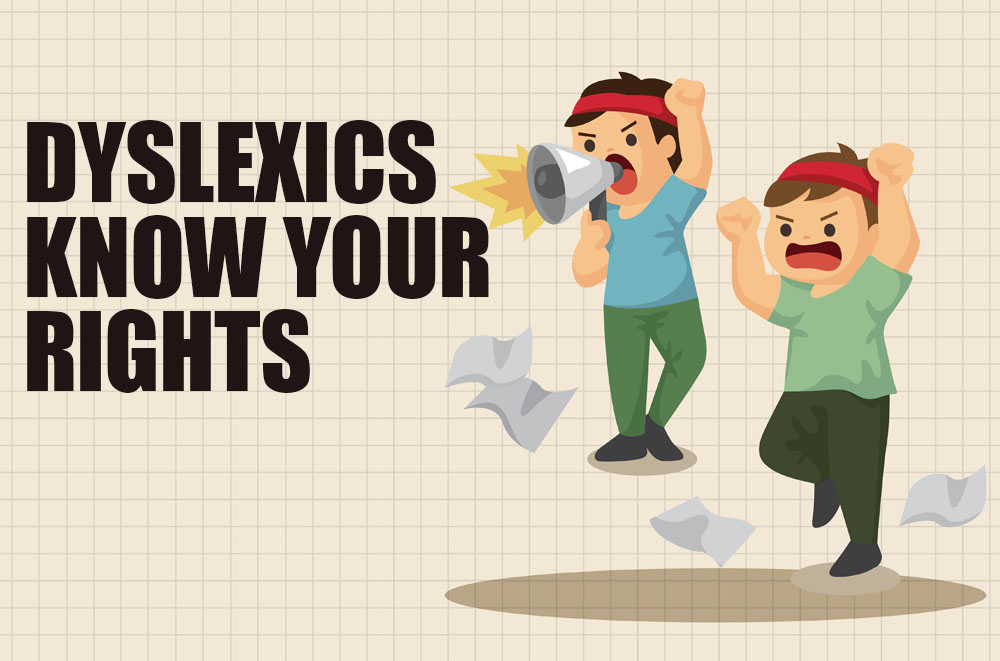 A few weeks back, the media storm surrounding a tribunal case between Starbuck’s and a dyslexic employee was a wake-up call to us all.
A few weeks back, the media storm surrounding a tribunal case between Starbuck’s and a dyslexic employee was a wake-up call to us all.
If you missed it, the case went something like this. Starbuck’s hires capable and enthusiastic employee. Employee show’s her capability and leadership and is promoted to the role of supervisor. As supervisor, part of her role includes taking the temperature of fridges and water at specific times and entering the results on a roster. Being dyslexic (with a possible sprinkling of dyscalculia) her spikey profile means that, while she may have exceled at certain aspects of her job; customer services, people management, making great coffee! (The important bits.) She struggled to accurately record the fridge and water temperatures.
If you need any assistance when reading this post please note Browsealoud is installed on this site. Click the headphone logo in the top left corner of the screen to launch the assistive toolbar.
Rather than recognising that the employee’s difficulties were a symptom of dyslexia, and that with ‘reasonable adjustments’, an environment which would allow her to excel in all areas of her job could have been created. She was instead accused of purposely falsifying documents, removed from certain duties and told to retrain. As we all know, much of the time others attitudes to dyslexia can be more damaging than dyslexia itself. Needless to say this employee’s treatment ignited a ‘vortex of self-deprecation’, which left the employee feeling suicidal.

If you follow The Codpast on social media, you may have seen that I was called upon to share my views on the case in the media. But as I sat there on the BBC, ready to broadcast to millions, I knew I was familiar with the phrase, ‘reasonable adjustments’, but sitting there on live TV I realised, this is something that I could be quizzed on! Did I actually know what a reasonable adjustment was? Also what exactly is a tribunal, is this something I would be asked about?
A few years back I’d been in a similar situation to the Starbucks employee. I was working in a company, with a management team that honed in on the negative traits that my dyslexic tendencies brought to the role, while being completely blind to the many attributes a diverse thinker could bring to their team. At the time I had no idea what my rights were, I didn’t even know a tribunal was a thing. If I’m honest, I still don’t quite know what a tribunal is; legal speak wasn’t made for dyslexics, I mean what’s wrong with the term ‘employment trial’?
Anyway if I’d known then what I know now, I still wouldn’t have bothered with a ‘employment trial,’ the job and the company just wasn’t worth fighting for. And on the plus side, if it wasn’t for that rather unpleasant incident, I wouldn’t have started The Codpast and wouldn’t have realised I’m a pretty awesome blogger and podcaster!
If you are however in a job that you need, love or that dismissal from could have a negative effect on your future job prospects, it’s important to take action.
Best practice says ‘taking action’ should start well before the ‘employment trial’ stage and even before you get the job in the first place. Walking into a job knowing the three K’s (Knowing yourself, Knowing your rights and Knowing how to communicate this to your employer) should allow you and a responsible employer to dance the tango of diversity, in a way that will allow the employee, employer and the business as a whole, to score 10’s across the board.
First things first, is dyslexia a disability?
Although you may not feel you have one, in the eyes of the law, dyslexia is categorised as a disability and this is a good thing. This means that under the 2010 Equality Act (EA) you will be protected against discrimination and your employer will have a duty to make reasonable adjustments that will assist you in performing your duties. Failure to do so can lead to potentially unlimited compensation being awarded by an employment tribunal.
The law being the law there is a caveat within EA. For your version of dyslexia to be recognised as a ‘disability’ under EA, you must be able to demonstrate that dyslexia has an adverse impact on your ability to carry out day-to-day activities.
So what are ‘reasonable adjustments’?

If your version of dyslexia falls within the EA definition of disability, then your employer is under a legal obligation to consider ways in which it can reduce any disadvantage you suffer due to your ‘disability’. Examples of reasonable adjustments include: providing a colleague to proof read documents, relaying instructions verbally as opposed to in writing, allowing dyslexic individuals to record instructions or meetings instead of writing things down e.g. providing a Dictaphone and giving the employee more time to perform written tasks.
Employers should also review whether they have policies which, although they apply to everyone may be particularly difficult for dyslexic employees to comply with.
Are there situations where an employer can withhold duties from a dyslexic employee?
In high pressure health and safety critical roles such as air traffic control or medical roles where the ability to read numbers and statistics swiftly is literally life and death there may be justifiable reasons why employers would not wish to employ an employee with dyslexia.
However, employers always need to consider whether there are reasonable adjustments which could eliminate any issues. For example, if instead of displaying the numbers on a screen these were relayed to the employee via audio / headset for them to make decisions, then the ability for them to read numbers is removed.
Employers are encouraged not to have blanket rules that prevent certain roles or tasks from being carried out by employees with dyslexia. Your role, duties, circumstances and their effect on you as a dyslexic should be considered and discussed with you before any determination is made regarding what you can or can’t do.
So how can I put this all into practice?
It’s great that the law is there to protect us, but as I said it’s important to implement the three K’s well before any issues start to materialise. When we are in roles that present us with few problems, or roles in which our coping strategies are effective. It can be easy to let our guard down. It’s important to regularly check in with yourself and assess what difficulties you are having or where potential issues may arise. Think about which coping strategies are working or which need tweaking. Also regularly check for any new techniques, technology or apps that can allow you to work even more efficiently.
It’s important to be forward thinking and to assess if a change to your role, a promotion or a new job may present you with tasks or methods of working that will cause difficulties. Many adult dyslexics have suddenly found themselves in a ‘situation’ where a team has been ‘restructured’ or they have been promoted and suddenly their coping strategies are no longer effective.
Facing an employer armed with a detailed knowledge of where your strengths and weaknesses lie, and knowing the adjustments that need to be made, will puts you in a much more powerful position than reacting to whatever is thrown at you.
Things to think about when talking to your employer.

As with all things in life, maintaining an open dialogue with your employer is critical. If your new to a company or new to dyslexia, look around and see if your company has made reasonable adjustments for other employees. If this is the case, chances are you are working for an employer that already has an open and inclusive culture. You should feel more at ease to bring up issues of dyslexia at a company with this mind-set. But if you still feel apprehensive, you may want to think about speaking to a colleague who has already been given help and finding out how they found the process.
If you are not confident your company will react positively to your disclosure, then arming yourself with all the facts and figures of your needs, and your companies’ legal rights, should make you feel more confident. In some cases, companies may not have had to deal with dyslexia in the past and this may be a new and scary experience for your employer! Giving your employee a clear idea of the options available to them, can reassure them that dealing with a diverse workforce need not be scary.
Forward thinking employers may actually take this as an opportunity, to educate themselves and other staff about dyslexia through group training sessions. Although this may feel daunting these sessions can inform a larger team of your difficulties and in turn, help other dyslexic employees in your organisation. These sessions can also be a really good way to inform your team of the way you work and simple things they can do to help make your working life a little easier.
Using the three K’s will arm you with the confidence to not just accept the one size fits all approach to neurodiversity that some employers take. Your version of dyslexia will be personal to you, and you should be treated as an individual when reasonable adjustments are being considered.
Lastly, don’t forget to shout about the good things that you bring to the table. As dyslexics, we might do things differently and that’s something to shout about. According to google, the definition of different is {non-identical, rare, independent and distinct}. Personally these are things I shout about at any given opportunity.
This blog post was inspired by an article by Katy Meves, Professional Support Lawyer in the national employment team at Shoosmiths LLP
If you like this post subscribe to this blog, join our newsletter or follow us on Facebook or Twitter to keep up to date with new content. You might also like our podcasts.
The Codpast is a multimedia production from www.extraordinaire.tv








[…] Dyslexics Know Your Rights! | Reasonable Adjustments Explained […]